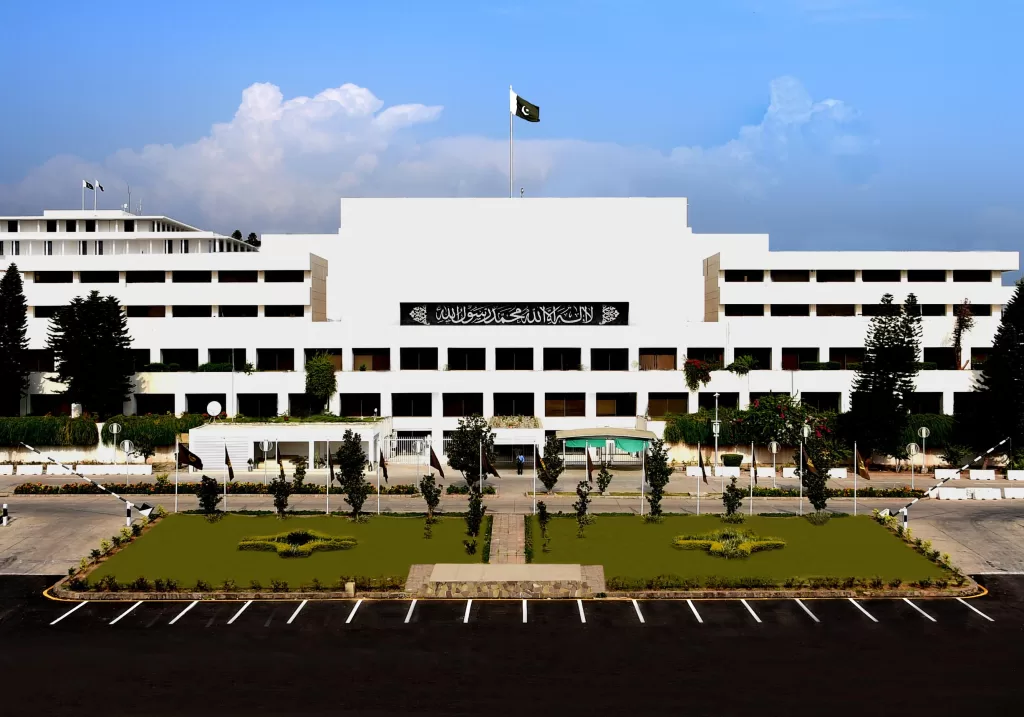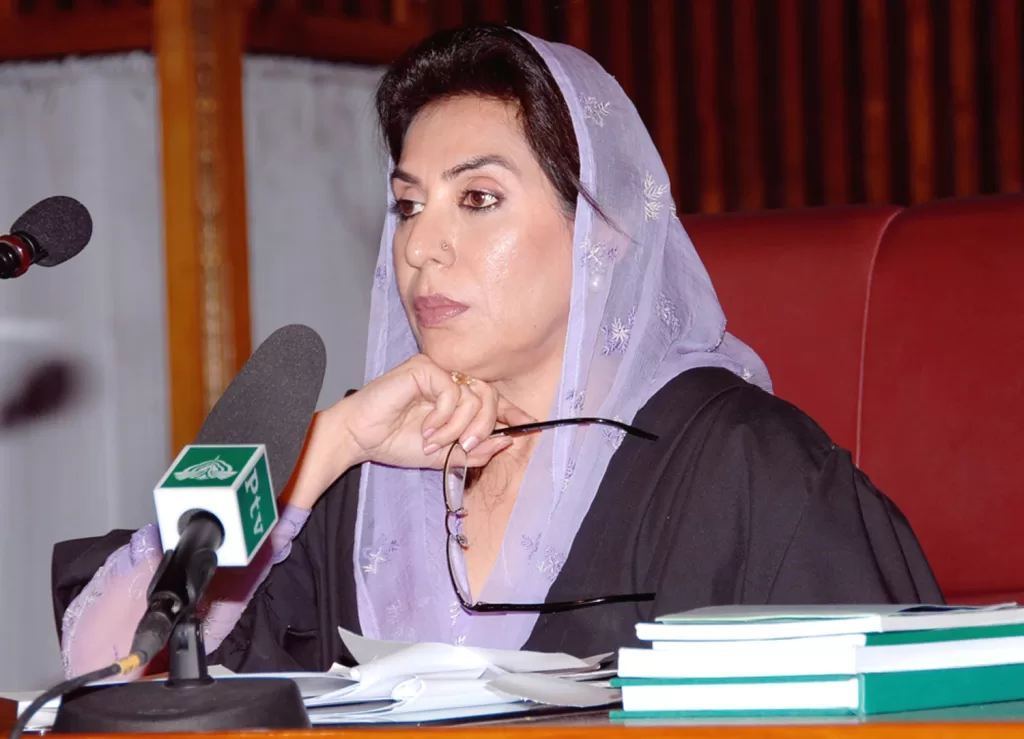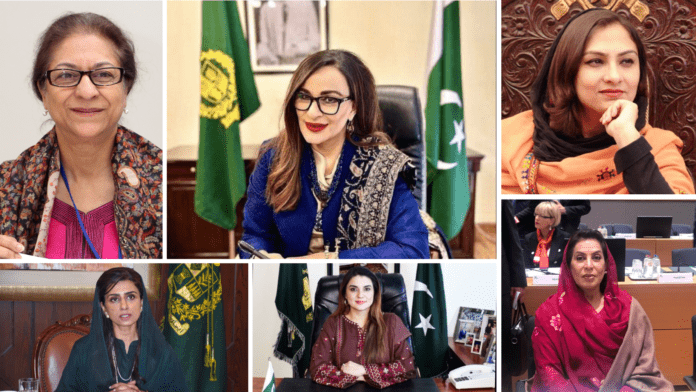Introduction
Women are increasingly playing a defining role in designing gender-sensitive policies and promoting women’s rights in the global political arena. These female lawmakers are essential in making sure that the legislative processes are inclusive and sensitive to the different demands of people of different genders. Their impact, which goes beyond the walls of parliament, is extremely important in questioning ingrained gender stereotypes and promoting structural reform. Through their participation in crafting and supporting legislation on issues such as gender-based violence, equal pay, and reproductive rights, these women leaders could be instrumental in steering societies toward greater gender equality.
In Pakistan, the presence of women in Parliament and various parliamentary committees marks a significant stride in a complex socio-political landscape traditionally influenced by patriarchal norms. The increasing involvement of female legislators in Pakistan’s political arena is a beacon of progressive thought and resilience.
They are not only participants in the legislative process but could be the key drivers in challenging the status quo towards more egalitarian policies. Their advocacy for legislative reforms, which emphasize women’s rights and empowerment, is pivotal in the ongoing transformation of societal attitudes towards gender roles and equality. This shift signifies a crucial change in Pakistan’s political narrative, underscoring the importance of female representation in governance for the creation of a more balanced and equitable society.
Their journey finds its roots in the nascent stages of Pakistan’s parliamentary history. The first Pakistani Parliament, convened after the nation’s independence in 1947, included just two women among its members, Begum Shaista Suhrawardy Ikramullah and Begum Jahanara Shahnawaz.
These women, affiliated with the Muslim League, were not merely symbolic figures; they were trailblazers who paved the way for future generations of women in Pakistani politics.
Their presence in the inaugural assembly was a bold statement in an era when women’s political participation was minimal worldwide. Their roles in the Parliament were foundational, setting the stage for future advancements in women’s political engagement and representation in Pakistan. Their legacy is a reminder of the enduring impact of women’s participation in governance, an impact that continues to resonate in the halls of Pakistan’s Parliament today.
The Historical Evolution of Women’s Participation in Pakistan’s Parliament
The evolution of women’s participation in the Parliament is a story punctuated by specific milestones and transformative figures. Starting from the pioneering presence of Begum Shaista Suhrawardy Ikramullah and Begum Jahanara Shahnawaz in the first assembly, the journey reflects a series of strategic advancements and policy decisions that have shaped the current landscape.The reserved seats for women in the 1956 and 1962 constitutions marked the initial steps towards formalizing women’s representation.
Yet, the impact during these decades was minimal, given the political instability and martial law periods. Furthermore, under the regime of General Zia-ul-Haq during 1980s, women’s political engagement was further restricted, highlighting the complex interplay between politics and gender norms.
However,a landmark decision under General Pervez Musharraf’s government in 2002, increased the reserved seats for women to 17% in both national and provincial assemblies. This period saw the emergence of influential women leaders like Fehmida Mirza, the first female Speaker of the National Assembly (2008-2013), who played a crucial role in promoting gender-sensitive legislation.

Impactful Legislation and Contributions
The Women’s Protection Bill (2006), The Protection against Harassment of Women at the Workplace Act (2010), The Criminal Law (Amendment) (Offences in the name or pretext of Honour) Act (2016), The Domestic Violence (Prevention and Protection) Act, The Hindu Marriage Act (2017), The Women in Distress and Detention Fund Act (1996), and The Acid Control and Acid Crime Prevention Act (2011) were the main legislative measures.
Parliamentarians like Dr. Attiya Inayatullah and Sherry Rehman have been instrumental in advocating for these laws. Their efforts highlight the critical role women parliamentarians play in addressing gender-specific issues. While there has been progress, challenges persist in terms of actual influence and decision-making power within the Parliament.
Current Landscape
While the increased representation of women in Parliament marks significant progress, it’s essential to delve deeper into the nuances of their influence and decision-making power. Despite the presence of women in legislative roles, their actual sway in key decisions often remains limited. This limitation is partly due to entrenched patriarchal norms within political parties and the broader society, which can restrict the extent to which women parliamentarians can exercise their authority. Furthermore, women in politics frequently face challenges in accessing leadership roles within parliamentary committees or key party positions, which are crucial for driving legislative agendas. Many of them done the great job such as Sania Nishtar; with her work in public health and education reform she exemplifies the evolving role of women in Parliament. Her initiatives, like the Ehsaas Program, demonstrate how women are influencing policy areas traditionally dominated by male counterparts. Moreover, Women parliamentarians have also been increasingly vocal in advocating for economic rights and empowerment. For example, initiatives aimed at increasing women’s participation in the workforce and entrepreneurship have gained momentum, with parliamentarians playing a crucial role in shaping these discussions. The efforts to strengthen legislation against domestic violence and harassment, led by figures such as Sherry Rehman, and some other prominent women legislators show women’s growing impact in addressing deeply rooted social issues.
Influencing Public Opinion and Societal Norms
They have been effectively using media and public platforms to engage in and influence public discourse on gender issues. Their active participation in various forms of media has been crucial in bringing attention to key issues and advocating for change. Such as, notable women legislators like Sherry Rehman, Kashmala Tariq, Fehmida Mirza, Hina Rabbani Khar, Asma Jahangir, and Marvi Memon have made significant appearances on television talk shows.
These platforms have been used to discuss a wide range of topics, from legislative reforms to broader societal issues impacting women. For instance, Asma Jahangir, a renowned human rights activist and lawyer, frequently participated in discussions that highlighted legal and human rights challenges faced by women. Marvi Memon, known for her outspoken stance on various issues, has used these appearances to advocate for policy changes and raise public awareness. Furthermore, the use of social media has been another critical avenue for these parliamentarians. Platforms like Twitter and Facebook have allowed them to reach a broader audience, engage with the public directly, and mobilize support for various causes. Their online presence has not only helped in advocating for women’s rights but also in challenging stereotypes and encouraging more women to participate in public life and politics.
In addition to that, the active engagement of these women leaders in public discourse has been instrumental in shifting societal attitudes towards gender equality in Pakistan. Regular appearances of these prominent women on national media have played a significant role in altering traditional perceptions of women’s roles in society, particularly in politics and leadership. Through their articulate and informed discussions, they have raised awareness about crucial issues such as gender-based violence, women’s legal rights, education, and economic empowerment, contributing to a gradual change in societal norms and attitudes.
The Gap Between Legislation and Practical Application
The journey from legislative victory to effective implementation often encounters significant hurdles.

The Domestic Violence (Prevention and Protection) Act
Despite its passage, the implementation of this Act has been uneven across different provinces. For instance, in Sindh, where the Act was adopted, the establishment of necessary infrastructure such as protection committees and shelters has been slow, leading to a gap in the practical support available to domestic violence survivors.
The Anti-Sexual Harassment Laws
While these laws mark a progressive step, their enforcement has been challenging. For example, the establishment of complaint cells in workplaces as mandated by the law has been inconsistent, with many organizations lacking such mechanisms, thereby limiting the law’s reach and effectiveness.
The Role of the Women’s Caucus in Ensuring Effective Law Enforcement
The Women’s Caucus also play a crucial role in bridging the gap between policy and practices. One of the strategies adopted by the Caucus is the establishment of monitoring bodies to oversee the implementation of laws. For instance, following the passage of the Anti-Sexual Harassment Laws, Caucus members advocated for and helped establish monitoring committees to ensure workplaces comply with the law. It further collaborates with NGOs and civil society organizations to conduct awareness campaigns and training sessions. These collaborations are vital in educating the public and relevant stakeholders about new laws and their implications.
The Caucus actively makes policy recommendations to enhance implementation mechanisms. For instance, they have recommended the allocation of specific budgets for the implementation of women-centric laws and the establishment of dedicated cells within government departments to monitor progress.
Policy Recommendations
Improving the participation of women legislators in Pakistan to enhance gender equality and combat gender-based violence requires a multifaceted approach, focusing on both systemic changes and grassroots initiatives. Here are several policy recommendations.
0 Political parties should actively recruit women candidates and provide them with comprehensive training in leadership, policy formulation, and public speaking. Mentorship programs that pair aspiring female politicians with experienced legislators can also be highly beneficial.
0 While Pakistan already has reserved seats for women, increasing these quotas could further boost women’s representation in Parliament. Additionally, ensuring these seats are allocated based on merit and activism in women’s rights can enhance the effectiveness of women legislators.
0 Political parties should be encouraged to promote women into key decision-making roles within their structures. This includes leadership positions, candidate selection committees, and policy formulation bodies.
0 Establish or strengthen the existing parliamentary committees dedicated to women’s affairs, with a clear mandate to focus on gender equality and gender-based violence. These committees should have the authority and resources to influence legislation and policy.
0 Empowering women economically through legislation that supports women entrepreneurs, guarantees equal pay, and promotes women’s participation in the workforce can help in reducing gender disparities.
0 Prioritize the formulation and implementation of laws that specifically address gender-based violence. This includes laws that protect victims, penalize offenders, and provide support systems for survivors.
0 Establish mechanisms to monitor the implementation of gender-related laws. This could include the creation of oversight bodies within the Parliament to track the enforcement and effectiveness of laws pertaining to women’s rights and gender-based violence.
0 Implement education and sensitization programs targeting both men and women, to address gender stereotypes and promote gender equality from an early age.
0 Facilitate and fund research on gender issues to inform policy-making. Accurate data on women’s issues, including gender-based violence, is crucial for effective legislation and policy interventions.
0 Develop programs that involve men and boys in advocating for and supporting gender equality. This helps in creating a more inclusive approach to tackling gender-based issues.




